<< Previous | Displaying results 631-640 of 6809 for "" | Next >>
Boria was born to a Jewish family living in the Bessarabian province when it was still a part of the Russian Empire. Following Romania's 1918 annexation of the province, life for Bessarabia's 200,000 Jews worsened. Subject to more widespread antisemitic laws and pogroms than while under Tsarist Russian rule, many Bessarabian Jews emigrated overseas or sought refuge back in Soviet villages. 1933-39: Boria became active in a local revolutionary communist group and was arrested and jailed many times. After…
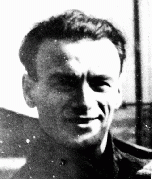
Fanny was the oldest of three girls born to a Jewish family in the Baltic seaport of Liepaja, a city with a large Jewish community in Latvia. Fanny attended a Jewish primary school there. Her parents owned and operated a shoe store and small shoe factory. 1933-39: As a young girl, Fanny's life revolved around activities with Betar, a Zionist youth movement founded in Riga in 1923. They had a group of about 25 boys and girls. They studied about Palestine and their Jewish heritage. In 1935 Fanny's mother…
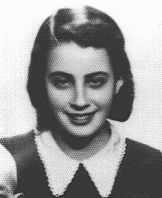
Jacob was born to a Jewish family in the Baltic seaport of Liepaja. He owned a clothing store in the city, and also owned some apartments, from which he collected rent. After his wife died, Jacob, who had retired, moved in with his daughter Sarah. 1933-39: Jacob was an avid reader. His favorite newspaper was Liepaja's German language daily, the Libauer Zeitung, which he liked to read in the garden and orchard around his daughter's home. On Sundays, "Grampa" would take his granddaughters Fanny and Jenny…
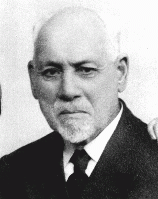
Herman was the oldest of nine children born to a Jewish family in the Latvian village of Aizpute. He was a World War I veteran, and after the conflict, in 1918, he fought for the establishment of a free Latvian republic. Two years later he married Sarah Gamper and they settled in the city of Liepaja, where they owned a shoe store. By the late 1920s they had two daughters, Fanny and Jenny. 1933-39: Herman designed patterns for the uppers of shoes, which he used to fashion into finished shoes. His shoe…
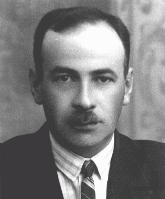
Sarah, born Sarah Gamper, was one of four children born to a Jewish family in the Baltic port city of Liepaja. Her parents owned a general store there. At the outbreak of World War I, Sarah was studying piano at a conservatory in Russia. During World War I, she remained there to serve as a nurse. She returned to Liepaja, and after marrying Herman Judelowitz in 1920, settled there. 1933-39: Sarah and Herman operated a shoe store in the front of their small shoe workshop. By 1935 they had three daughters,…
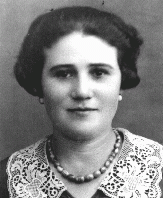
Bella, born Bella Hirschorn, was raised in a Jewish family in the Latvian town of Kuldiga. When she was a young woman, Bella moved to the small town of Aizpute, where she met and married Daniel Judelowitz. Together they opened a bakery-grocery in the town. In the 1920s they moved to Liepaja and opened a dry goods store. The couple had 10 children, one of whom died in infancy. 1933-39: The Judelowitzes' store sold fabric and various clothing items and accessories from buttons to shirts and stockings. After…
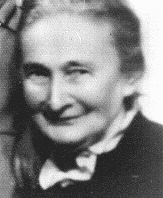
Daniel was born to a Jewish family in the Latvian town of Aizpute. There, Daniel met and married Bella Hirschorn and together they opened a bakery-grocery in the town. In the 1920s they moved to Liepaja, on the Baltic coast, and opened a dry-goods store. The couple had 10 children, one of whom died in infancy. 1933-39: The Judelowitzes' store sold fabric, accessories and various clothing items from buttons to shirts and stockings. After Daniel and Bella retired, their daughters took over the business. In…
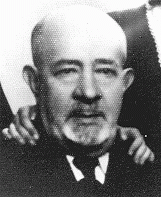
Betty was one of 14 children born to a religious Jewish family in Aufhausen, a village in southwestern Germany. Her father was a successful cattle dealer in the area. On May 8, 1903, at age 20, Betty married Max Lauchheimer, a cattle merchant and kosher butcher. They lived in a large house by an orchard in the village of Jebenhausen. Betty and Max had two children, Regina and Karl. 1933-39: In late 1938 Betty and Max were visiting their daughter in Kippenheim when police arrested Max and their son-in-law.…
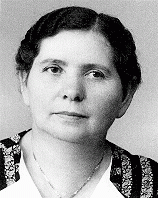
Wilhelm was the oldest of two children in a Jewish family living in the Habsburg capital of Vienna. Shortly after Wilhelm was born, World War I broke out. Because of food shortages, Wilhelm and his mother left for her hometown of Hostoun, near Prague. After the war they returned to Vienna where his father had remained to run his shoe business. As a young man, Wilhelm worked for his father. 1933-39: In March 1938 Germany annexed Austria. Soon after, the Germans arrested Wilhelm because he was a Jew dating…
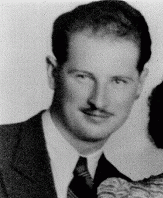
Channah was one of six children born to a Jewish family. In 1914, a year after her father died, the family fled during World War I to Russia. After the war they returned to Lithuania and settled in the village of Pampenai in a house owned by Channah's grandparents. When Channah's three oldest siblings moved to South Africa in the 1920s, Channah helped support the family by sewing. 1933-39: Channah was working as a seamstress in Pampenai when, in the mid 1930s, she met and married Channoch Zaidel. The…
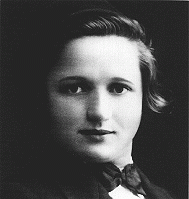
We would like to thank Crown Family Philanthropies, Abe and Ida Cooper Foundation, the Claims Conference, EVZ, and BMF for supporting the ongoing work to create content and resources for the Holocaust Encyclopedia. View the list of donor acknowledgement.